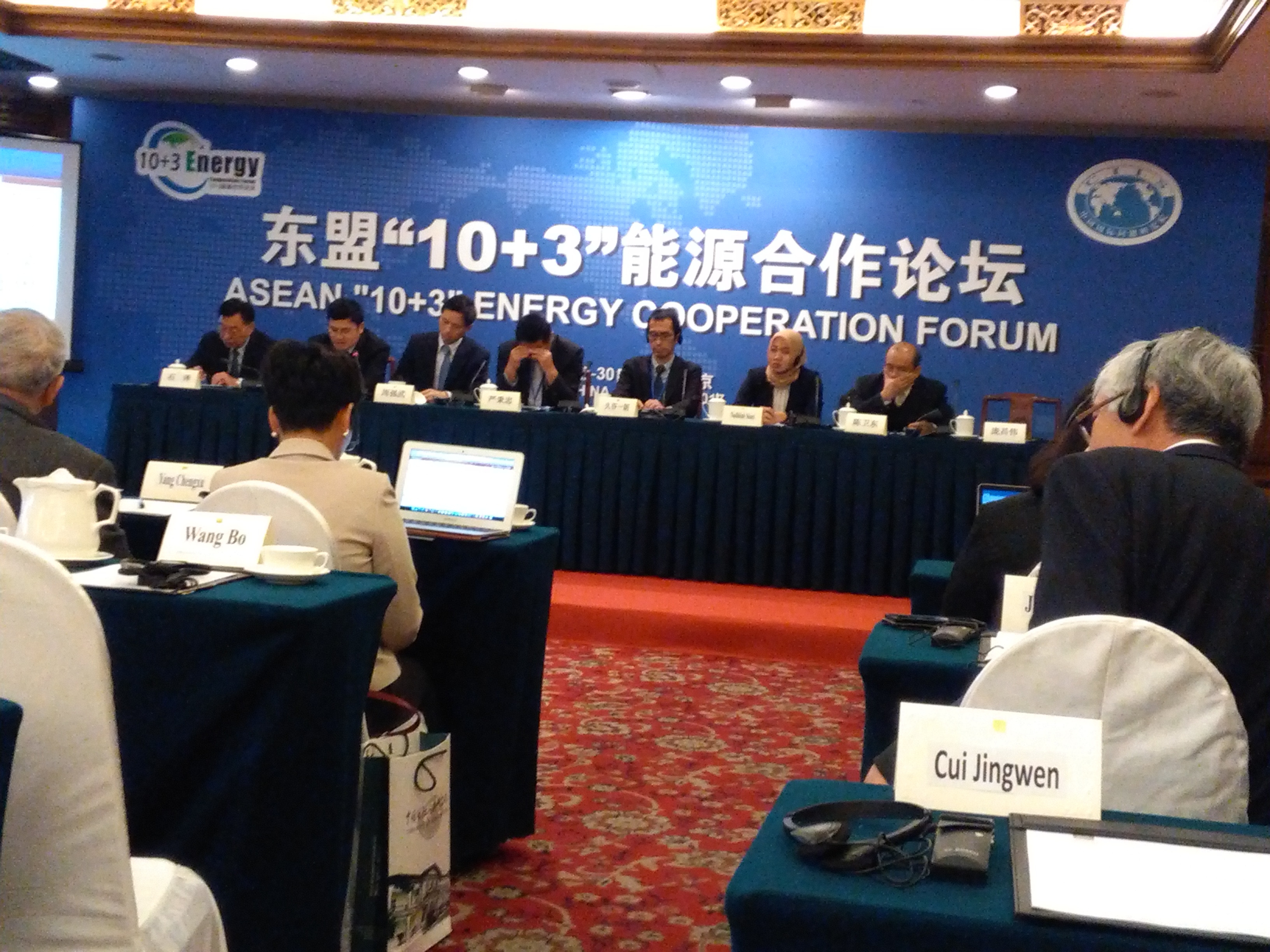Menu

As an effort to promote East Asia Energy Cooperation and Sustainable Development, China Institute of International Studies (CIIS) held a dialogue forum which gathered stakeholders and think tanks in the energy field across ASEAN and the Plus 3 countries (China, Japan, Korea). Called the ASEAN 10+3 Energy Cooperation Forum, the event was held in Beijing, China on 29-30 November 2017. Discussion in this forum included the ‘One Belt One Road’ initiative introduced by the Chinese government in 2013, which aimed to enhance economic integration and regional connectivity.
The ASEAN Centre for Energy (ACE) as a regional energy think tank in ASEAN participated in three main sessions. During the first forum of ‘New Trend and New Pattern of East Asia Energy Development’, ACE shared the civilian nuclear milestones and status in providing energy in East Asia countries and the position of ASEAN member States (AMS) regarding nuclear energy today. Several AMS have initiated to introduce nuclear power to their energy portfolios to address their concerns in future energy security and carbon emission. The AMS highlighted the need for continued information sharing and capacity building in civilian nuclear energy for power generation with dialogue partners and international organisations so that the region will be more informed and updated on the latest nuclear energy developments and technologies. To enhance its knowledge and capacity, ASEAN has several cooperation with China, Japan, and Korea in nuclear energy policy, financing, safety, and security.
In the second main forum under the topic of ‘Cooperation on Renewable Energy and Sustainable Development’, ACE shared about energy cooperation of the AMS and the direction of the regional and international cooperation. In renewable energy (RE), ASEAN has several cooperation not only among AMS but also with other countries. One of long term cooperation in RE was the Renewable Energy Support Programme for ASEAN (ASEAN-RESP), a joint-cooperation between ACE and GIZ on behalf of the German Federal Ministry for Economic Cooperation and Development (BMZ). The programme successfully provided support to the implementation of ASEAN Plan of Action for Energy Cooperation (APAEC) and was completed in December 2016. The cooperation between ACE and GIZ is continued with a new programme called the ASEAN-German Energy Programme (AGEP) which aims to improve regional coordination for the promotion of RE and energy efficiency towards sustainable energy for all.
On the last day, ACE pointed out the role of research & development (R&D) in harmonising RE policy in ASEAN during the session of ‘Policy Coordination and Cooperation Platform for East Asia Energy Cooperation’. R&D is one of the important components in establishing a well-targeted policy in energy field, especially in RE. With better data collection and a thorough potential mapping of RE, ASEAN can optimise the use of RE to move towards a more sustainable region. As China, Japan, and Korea are ahead of most of the AMS in terms of R&D in RE, they are expected to transfer the knowledge through more collaborations with AMS in improving R&D in the future. (NS/RH/MS. Featured photo credit: ACE)
